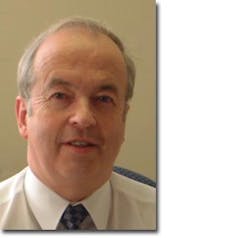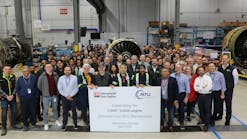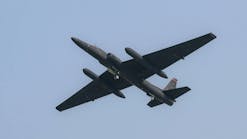Q: How did you get involved in the industry?
A: I joined Douglas Equipment as an apprentice engineer. I initially qualified as a production engineer. Further training as a mechanical engineer was followed by a post graduate qualification in management. I have spent time in the production, engineering, design, and sales and marketing departments and have been the sales and marketing director for approximately 20 years.
Q: What are some of the major trends you have seen developing over the past decade?
A: The major trend over the last 20 years affecting my company has been the development and expansion in the use of towbarless aircraft handling tractors. Douglas was founded in 1947 as a specialist vehicle manufacturer and has been producing aircraft towing tractors since the early 1950s. We introduced the first Douglas towbarless tractor in 1989 and we have become a market leader and have been a major player in promoting the use of the towbarless concept worldwide. Going forward, the move to alternative fuels will be an important trend due to the increasing environmental pressures on our industry. I also believe in the coming years we will see the development of the towbarless aircraft handling concept for the dispatch towing of aircraft: That is the towing of fully laden aircraft at high speed to the end of the runway before engine start up and take off, as part of the aviation industry’s move to embrace the green concept and save fuel and reduce aircraft exhaust emissions. Looking a little further ahead, I foresee the movement of aircraft from the terminal/ramp to the end of the runway or to the maintenance area becoming a fully automated and remotely controlled operation involving the use of AGTVs (automated guide towing vehicles), not only for environmental reasons but also to ease congestion and improve the traffic flow at airports.
Q: What are some of the biggest challenges you have faced over the years?
A: I guess opening up new markets and trading in some established markets in difficult political times. Introducing the towbarless towing concept to the sometimes conservative aviation industry around the world has also had its challenges. Battling with the economic peaks and troughs that affect the aviation industry on a seemingly cyclical basis is also a challenge we face on a fairly regular basis.
Q: What do you favor most about working in this industry?
A: The aviation industry is a great industry to work in; it is a very specialized international niche industry that is truly global in every sense. It is a very close-knit, friendly industry with many long-serving participants, both companies and individuals. It is also an industry that knows no boundaries and is seemingly unaffected by many of the political pressures that affect our daily lives.
Q: What changes would you like to see made in the industry?
A: I would like to see a greater investment by the industry in its ground support equipment. The aviation industry is a very specialized high-tech industry with airframe manufacturers investing huge sums of money in developing new technology, and aircraft and airlines spending large sums of money to acquire the latest fuel- and emissions-efficient and quieter aircraft. In comparison, the investment in new technology for handling aircraft more efficiently on the ground and in new ground support equipment is very small, which is disappointing, as ground support equipment is essential to the industry, because without it aircraft would not get into the air.
Q: What advice would you give to those new to the industry?
A: You have joined a great industry in which no two days are the same. You will face new challenges every day that will test your knowledge and skills and bring you great satisfaction. You will also enjoy working in a very friendly industry that crosses all national, political and economic boundaries and which offer great opportunities and rewards.
Q: Who do you admire?
A: Within the industry I admire many of the people who have been featured in this VIP column, people who have been in our industry for a long time and have contributed so much of their time and efforts to make the industry what it is today.






